Taylor Robie
MLPerf Training Benchmark
Oct 30, 2019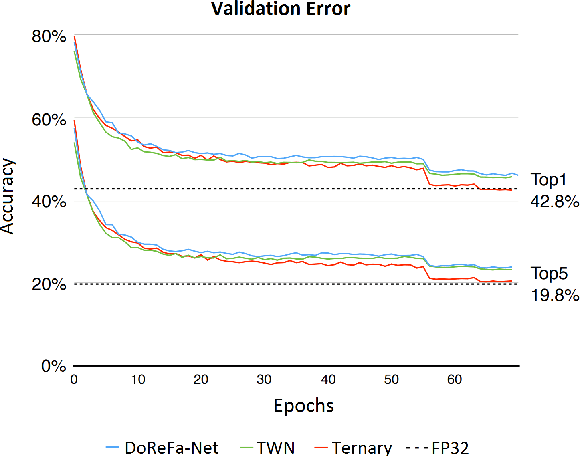
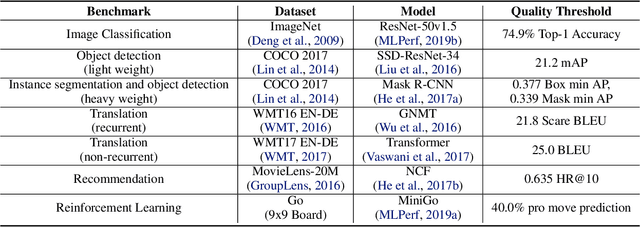
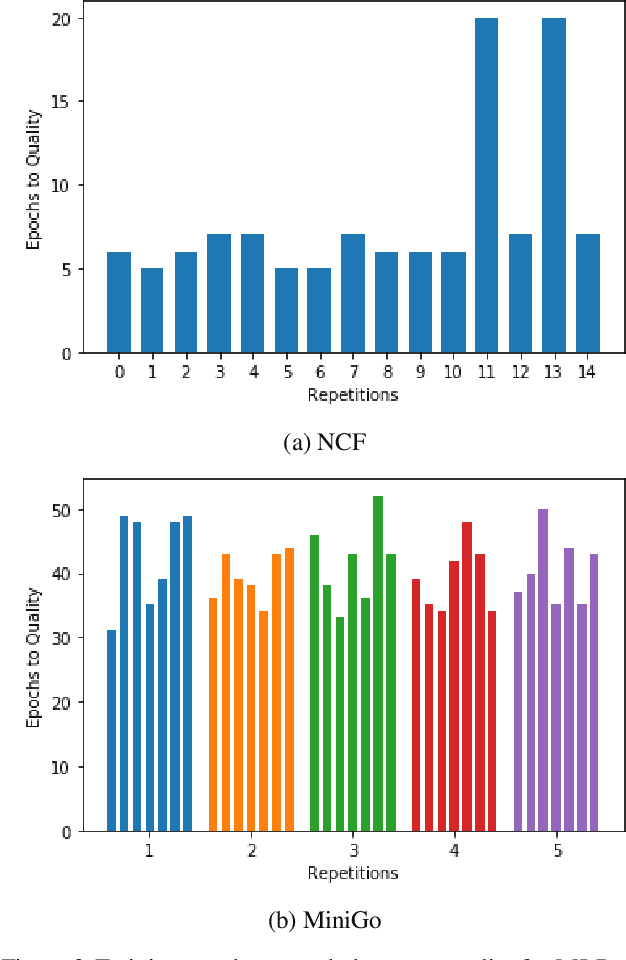
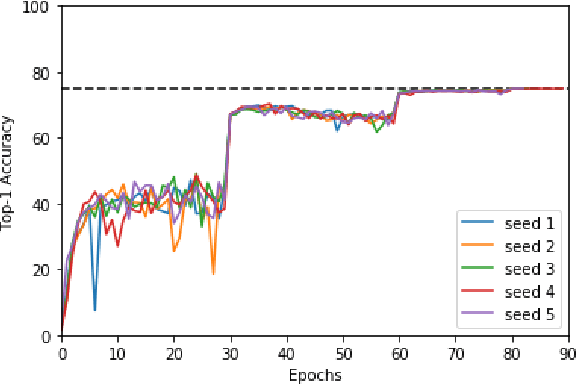
Abstract:Machine learning is experiencing an explosion of software and hardware solutions, and needs industry-standard performance benchmarks to drive design and enable competitive evaluation. However, machine learning training presents a number of unique challenges to benchmarking that do not exist in other domains: (1) some optimizations that improve training throughput actually increase time to solution, (2) training is stochastic and time to solution has high variance, and (3) the software and hardware systems are so diverse that they cannot be fairly benchmarked with the same binary, code, or even hyperparameters. We present MLPerf, a machine learning benchmark that overcomes these challenges. We quantitatively evaluate the efficacy of MLPerf in driving community progress on performance and scalability across two rounds of results from multiple vendors.
Scaling Up Collaborative Filtering Data Sets through Randomized Fractal Expansions
Apr 08, 2019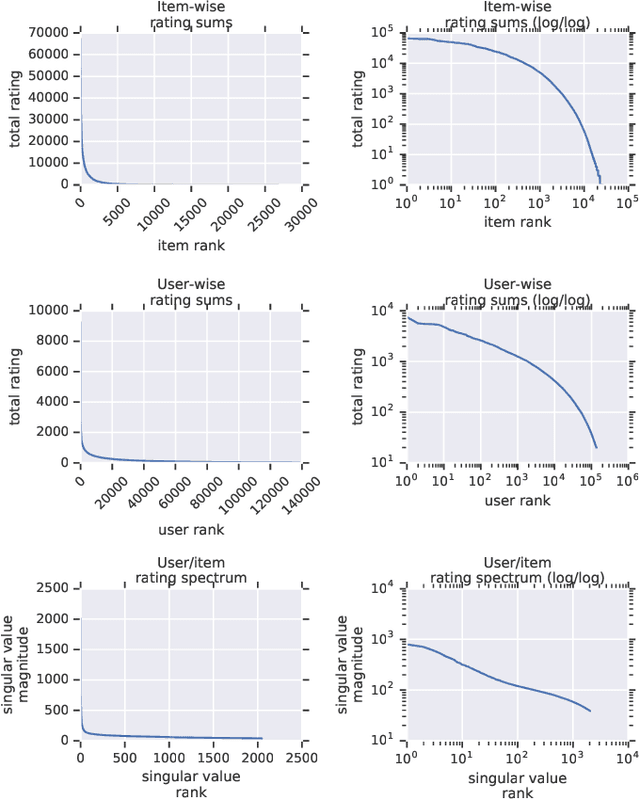
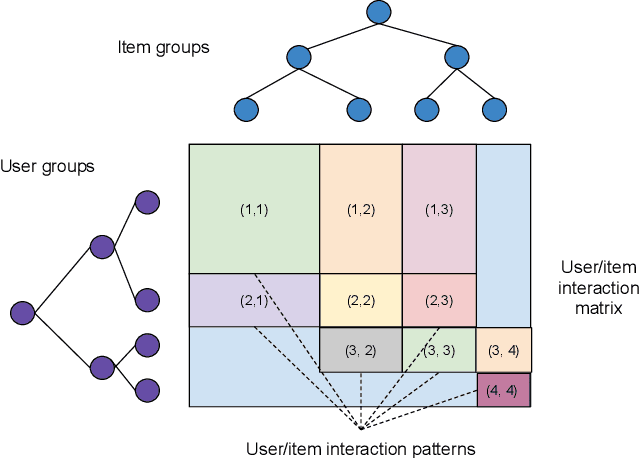
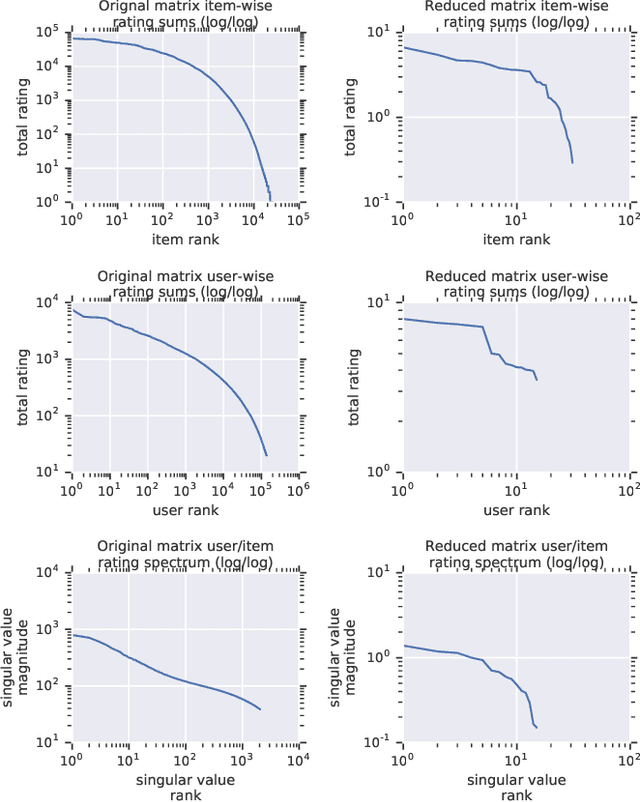
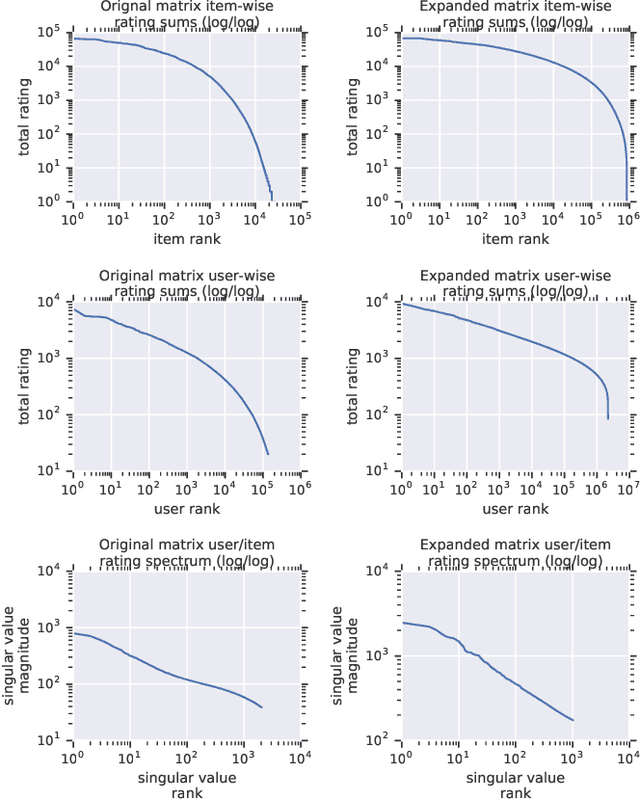
Abstract:Recommender system research suffers from a disconnect between the size of academic data sets and the scale of industrial production systems. In order to bridge that gap, we propose to generate large-scale user/item interaction data sets by expanding pre-existing public data sets. Our key contribution is a technique that expands user/item incidence matrices matrices to large numbers of rows (users), columns (items), and non-zero values (interactions). The proposed method adapts Kronecker Graph Theory to preserve key higher order statistical properties such as the fat-tailed distribution of user engagements, item popularity, and singular value spectra of user/item interaction matrices. Preserving such properties is key to building large realistic synthetic data sets which in turn can be employed reliably to benchmark recommender systems and the systems employed to train them. We further apply our stochastic expansion algorithm to the binarized MovieLens 20M data set, which comprises 20M interactions between 27K movies and 138K users. The resulting expanded data set has 1.2B ratings, 2.2M users, and 855K items, which can be scaled up or down.
 Add to Chrome
Add to Chrome Add to Firefox
Add to Firefox Add to Edge
Add to Edge